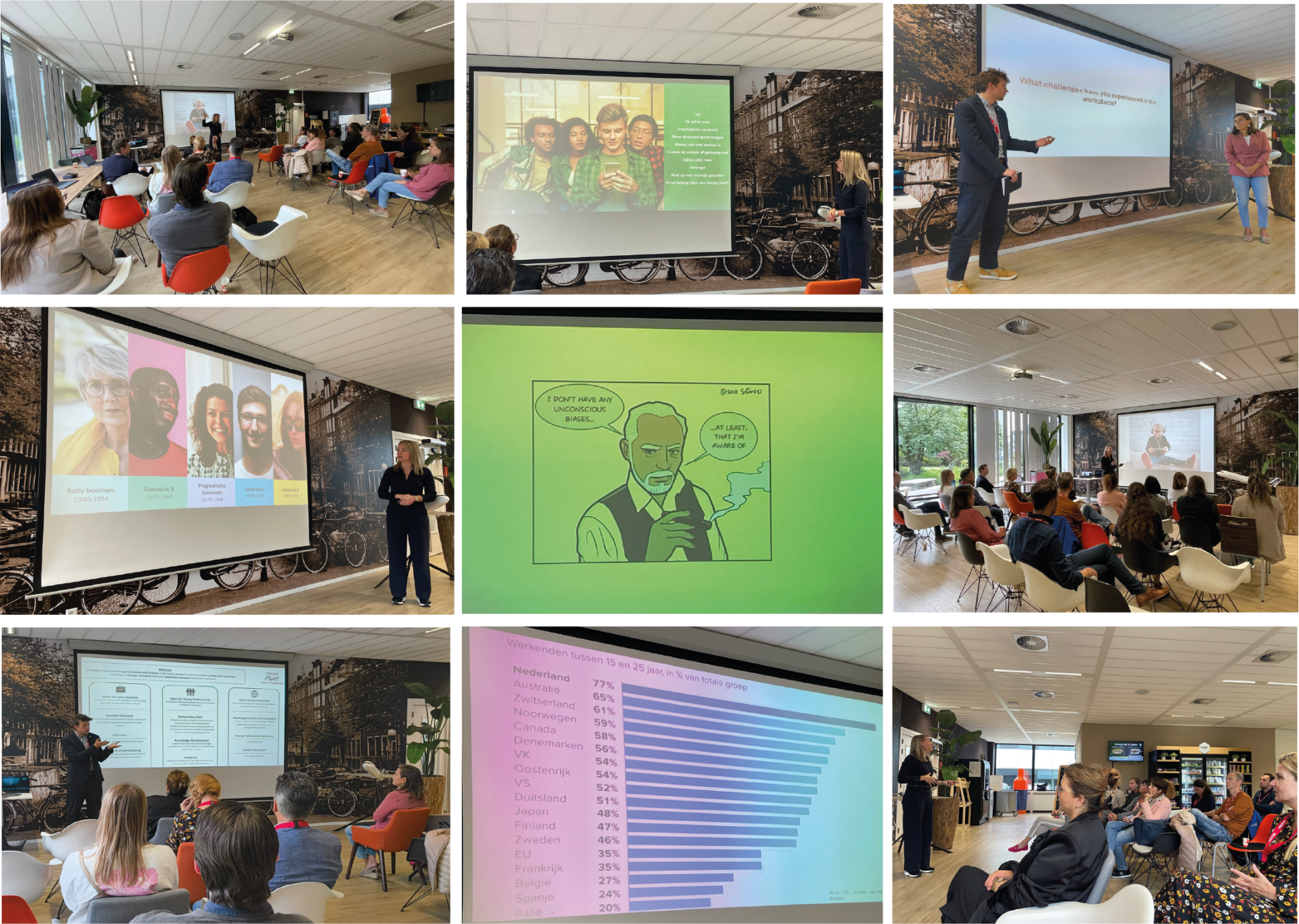
The age of talent: how organisations must adapt
Share news
Talent has been in control for some time. Organisations are no longer in the luxurious position of simply selecting talent; rather, it is talent that selects organisations. This reversal demands a fundamental shift in thinking and action: no longer can we hope that talent will naturally walk through our doors; instead, we must actively build an environment where people choose to stay and grow.
Yesterday, at the NAG HR event ‘Generations at Work: Grow, Guide, Retain’, kindly hosted at Fokker Services Hoofddorp, this very challenge was at the heart of the discussion: how do we, as organisations, adapt to a world where talent makes the rules? How do we remain attractive to different generations? And how do we harness technology, such as AI, to make work and leadership more human and effective?
A warm welcome and an inspiring keynote
The day began with a warm welcome from Nathalie van der Valk van Fokker Services Hoofddorp, who highlighted the importance of a strong community and the sharing of knowledge and experience within the aviation sector.
This was followed by the inspiring keynote speaker Monique Vrolijk, who immediately caught the audience’s attention with a challenging question: “When is this quote from, and which generation is it about”?
“The youth of today love luxury; they have bad manners, show disrespect for authority, and have no respect for older people”.
The respons surprised most people in the audience: it was a quote from Socrates, 400 BC.
Her point was crystal clear: for centuries, we have been inclined to see the youth as a problem. Every generation has its own norms, values and challenges — and therein lies both the strength and the key to organisational success.
A programme full of insights and inspiration
The programme offered a rich mix of inspiration and practical insights. Through concrete figures and real-world examples, participants gained a clear view of the challenges and opportunities that come with a multi-generational workforce.
Next, Eva Bijl, on behalf of Young Fokker and Jens van den Berg took the stage on behalf of Young NAG. They highlighted the importance of young talent in the aviation sector and shared their experiences on how organisations can involve young professionals in important decisions and strategic initiatives. They stressed that it is vital to give younger generations not only a seat at the table but also a voice in decision-making processes — for example, through multidisciplinary teams, shadow boards or brainstorming sessions. Only then do they truly feel heard and engaged.
In the second part of the programme, participants engaged in interactive sessions ‘speed dating’ exploring questions such as:
- What do you think makes a company attractive to young professionals?
- What support do young professionals need from managers and hr to grow
- What makes young professionals want to stay at a company?
Conclusions from the event
The main conclusion?
- Give employees room to learn, to experiment and to forge their own path. Growth is no longer a standard trajectory; it is a dynamic process aligned with each generation’s personal ambitions.
- Leadership must be about coaching. People do not leave their job; they leave their manager. Creating a culture where making mistakes is acceptable and where there is space for dialogue is essential.
- Build sustainable relationships with employees. Conduct ‘stay interviews’ to understand what motivates them and what you can do to support them as a leader. Technology, such as AI, can assist here — but only if it is used to empower people rather than replace them.
The event made one thing very clear: it is no longer a passing trend that talent is in control; it is the new reality. The challenge is for organisations and leaders to respond to this, with an awareness of generational differences, a space for AI and, above all, a human approach.

Well-attended GMA at Hive Woensdrecht – Key changes effective from 1 January 2026
19 December 2025
The General Members Assembly (GMA) was well attended and marked an important starting point for the next phase of NAG. During the GMA, members were briefed on the proposed direction and unanimously approved the integration of NAG and LRN. Decision…
Segment session: cybersecurity
15 December 2025
Following the GMA, a substantive programme took place, originally consisting of two parallel segment sessions (MRO & Manufacturing and Airport Development). As the second speaker was unfortunately unable to attend, the programme evolved into a well-a…